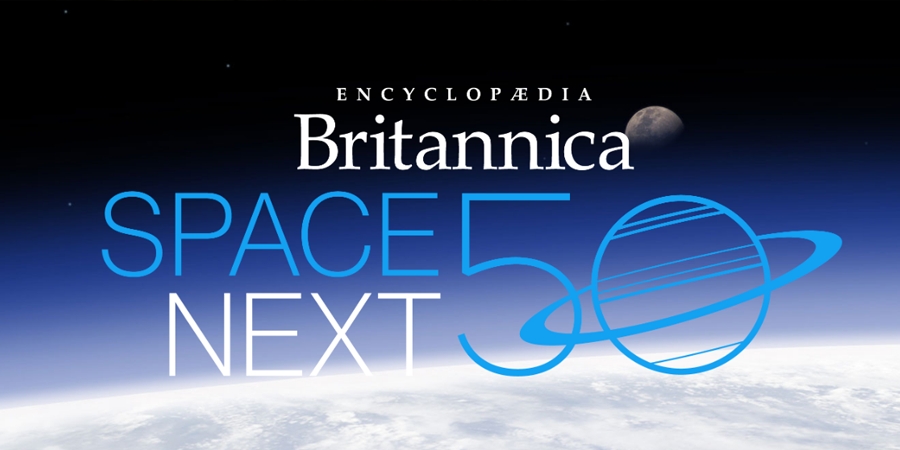Encyclopaedia Britannica has introduced Space Next 50, an engaging interactive look at space exploration in its many dimensions, with historical perspectives, biographies of major figures, quizzes, videos, statistics and some philosophical reflections on humanity’s enduring quest to transcend the boundaries of our planet. Comprehensive and multifaceted, the program which is free of charge to use, captures all the drama of the 1960s race between the United States and the Soviet Union to be the first to land on the Moon It’s ideal for students, teachers, space buffs anyone who’s curious about space exploration. Features include:
- A complete timeline of the events that led up to the 1969 Moon landing, beginning with pioneering rocket scientist Robert Goddard’s suggestion in 1920 that it could and should be done.
- Riveting facts and statistics, such as: there are 170 billion galaxies in the observable universe. (How many people, do you think, have orbited the Earth since Soviet cosmonaut Yuri Gagarin became the first to do so in 1961? The answer may surprise you.)
- Videos, including actual footage of the Moon taken on the Apollo 11 and other missions, and President John F. Kennedy’s famous 1961 speech at Rice University kicking the race against the Soviet Union into high gear and resolving to put an American on the Moon “before this decade is out.”
- In-depth articles covering Apollo 11 and subsequent missions, the history of the space program, and biographies of key people, from astronauts such as Neil Armstrong, John Glenn and Sally Ride to Katherine Johnson, Dorothy Vaughan and Mary Jackson, three notable African-American women who were vital to the space program working behind the scenes.
- The site even tackles the conspiracy theory, popular in some esoteric circles, that the Moon landing never happened, that it was somehow faked.
The launch of the website marks the beginning of what the company says will be “a yearlong journey to examine our past, present, and future in space.” More content will be added, and they invite readers to participate and be part of it. Britannica’s Space Next 50 is available at https://www.britannica.com/explore/space/.


















